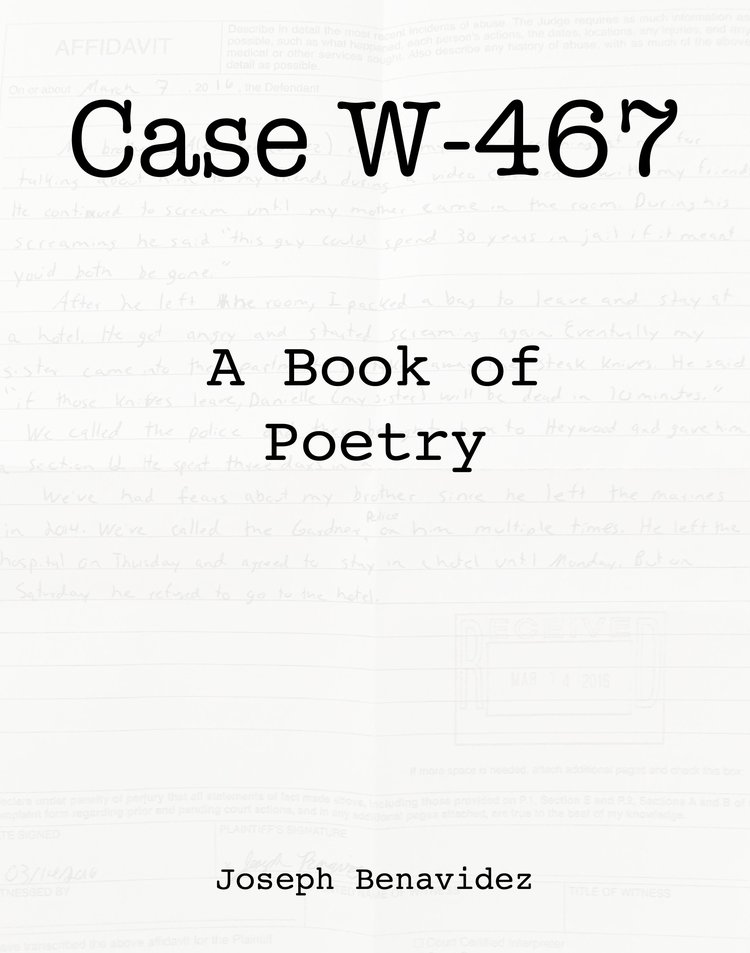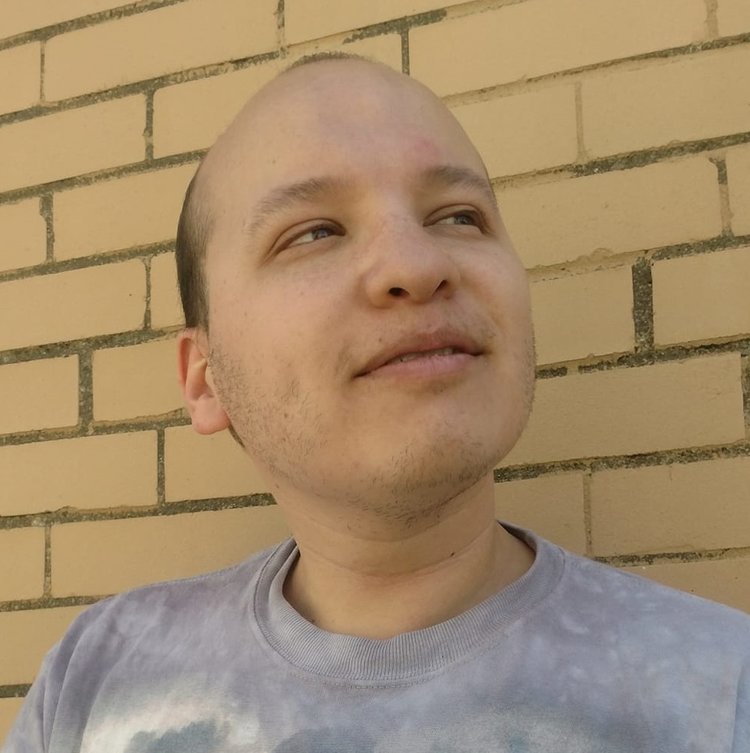When did you first encounter poetry? How did you discover that you wanted to write poems?
Like most people, my first encounter with poetry was in middle school when the curriculum demanded it. But my first time experiencing poetry as an art form was in college when I read Kettle Bottom by Diane Gilliam Fisher. Her collection on coal miners in West Virginia was so real, so honest, it made me stop and really think about how powerful poetry can be. Since then, I’ve been a big fan of poetry and have found that writing a poem is the best way to express a moment of my life.
Do you have a writing routine? A favorite time or place to write?
My writing routine was mainly sitting down with a pen and notebook or using my phone to just type directly into a Google Doc. I also wrote a lot of these poems with friends when we’d do tiny workshops – we’d meet up, give each other 10 minutes and then talk about the poems we wrote. There was a lot of self-editing, lots of asking friends for input.
I’ve never forced myself to have a strict writing schedule a la “I have to write at noon every day” but I did force myself to write when I had the free time. When I got home from work, it would be 1 hour of writing/editing before I could have an hour of Netflix. It’s a hard lesson to learn, but in order to write a book, you have to write the book.
Where do your poems most often come from—an image, a sound, a phrase, an idea?
For this collection, I made a list of topics I wanted to write about first. There’s so much misunderstanding and confusion around getting a restraining order, living with someone who has a form of PTSD and surviving a sibling’s death that I just wanted to clear the air a little, share what I experienced to stop comments and questions. After I had the list, it was easier to sit down and write a poem – I didn’t need to “find” inspiration because I knew the general story of what each poem was. Some of the poems in the collection were not on the first list and some of the topics on the first list were combined into one poem, but knowing that I wanted to write about the symptoms before an episode or how one night Alex broke every light bulb in the house made my writing time more productive.

Which writers (living or dead) do you feel have influenced you the most?
This is always such an impossible question to answer (and I always want to be arrogant and say me) but I have never been disappointed by anything from Sylvia Plath, Gillian Flynn, Bryan Fuller or Julia Quinn.
Tell us a little bit about your new collection: what’s the significance of the title? Are there overarching themes? What was the process of assembling it? Was is a project book? Etc.
The first part of the collection is about living with my brother, Alex, after he came home from serving in the Marines. Alex suffered from a psychotic break and he got violent, and I knew it wasn’t safe for me or my mother to continue living with me. Eventually, I sought a restraining order and it was like throwing gasoline on a fire. Family members and friends suddenly had a million comments on my actions. But none of them had been in the room when my brother was threatening to kill me. So the book started as a way to shut people up but over the months of writing, it became a way to release the traumatic experiences I had endured. It helped deal with the reality of legally not being able to see my brother.
The second part of the collection regards coming to terms with Alex’s death. A year and a month after I received the restraining order, Alex committed suicide. So this section has poems about writing his obituary, needing help covering the funeral costs, the realization that Alex is dead and how different my life is going to be now.
It’s not a happy book. haha. There are some light-hearted poems but it’s a lot of sad stuff. But this collection is based entirely on my experiences and a lot of those experiences were not happy. The title, Case W-467, is in reference to the Gardner District Court’s filing system since the file on my request for a restraining order is in Section W and the case number ends in 467.
“Science Says…”
In 7 years
your body regenerates every cell,
creating fresh atoms
from bruised and broken molecules.
Does that mean seven years
til the moment everything resets?
Seven years for my ears to stop flinching
at squeaky hinges, popped beer cans.
Will my 32-year-old eyes
stop tracking hand movements,
searching for clenched fingers and tight shoulders?
Two thousand four-hundred and ninety-three days
to quit pausing in front of doors
listening for silent demons lurking within.
To trust the smiles of men
and not flinch at nouns like
veteran, marine, Afghanistan.
By 2023, will I
be free of sleepless nights,
terror filled mindscapes?
Cured of sweat-soaked sheets,
aching muscles from balling fingers
into defensive fists.
Siete años
To relearn the language
of living with a person.
To cease hiding food in my room,
unpack my emergency bag.
Seven years is a long time to wait
for neon-colored memories
to fade gray-dull.
I don’t have much faith in rhetorical answers
but as an atheist
I swore hope to science
and science says…

Joseph Benavidez.